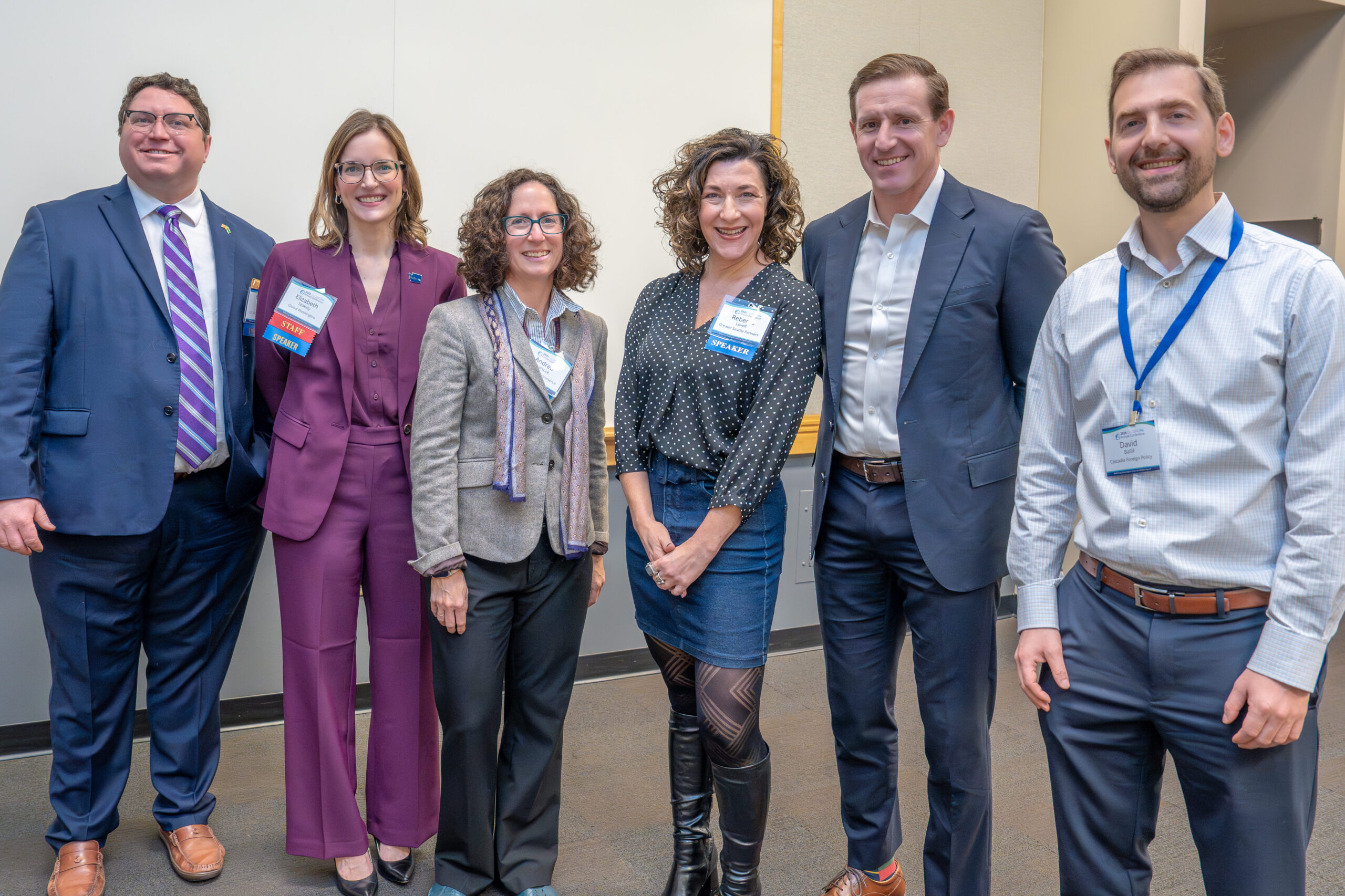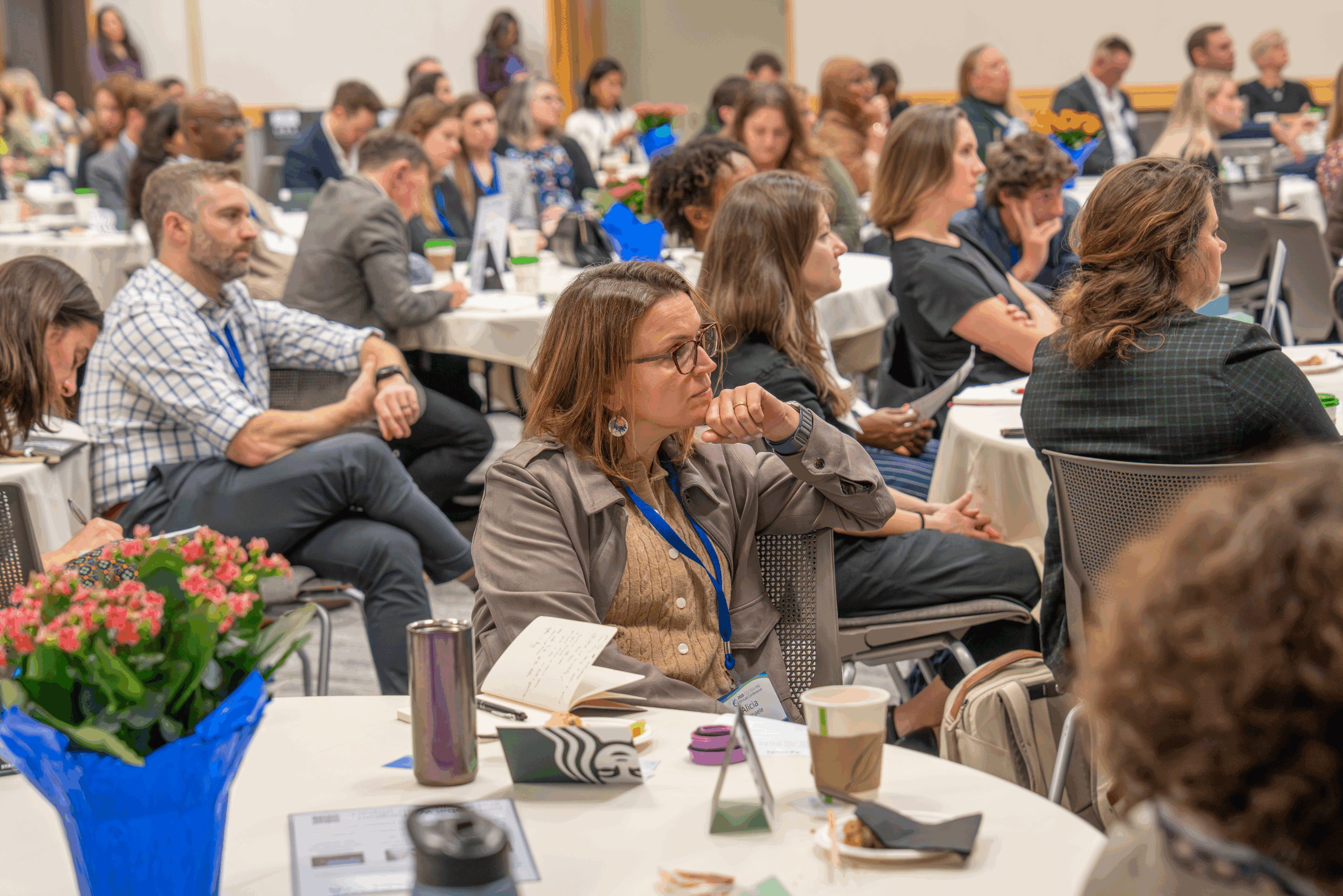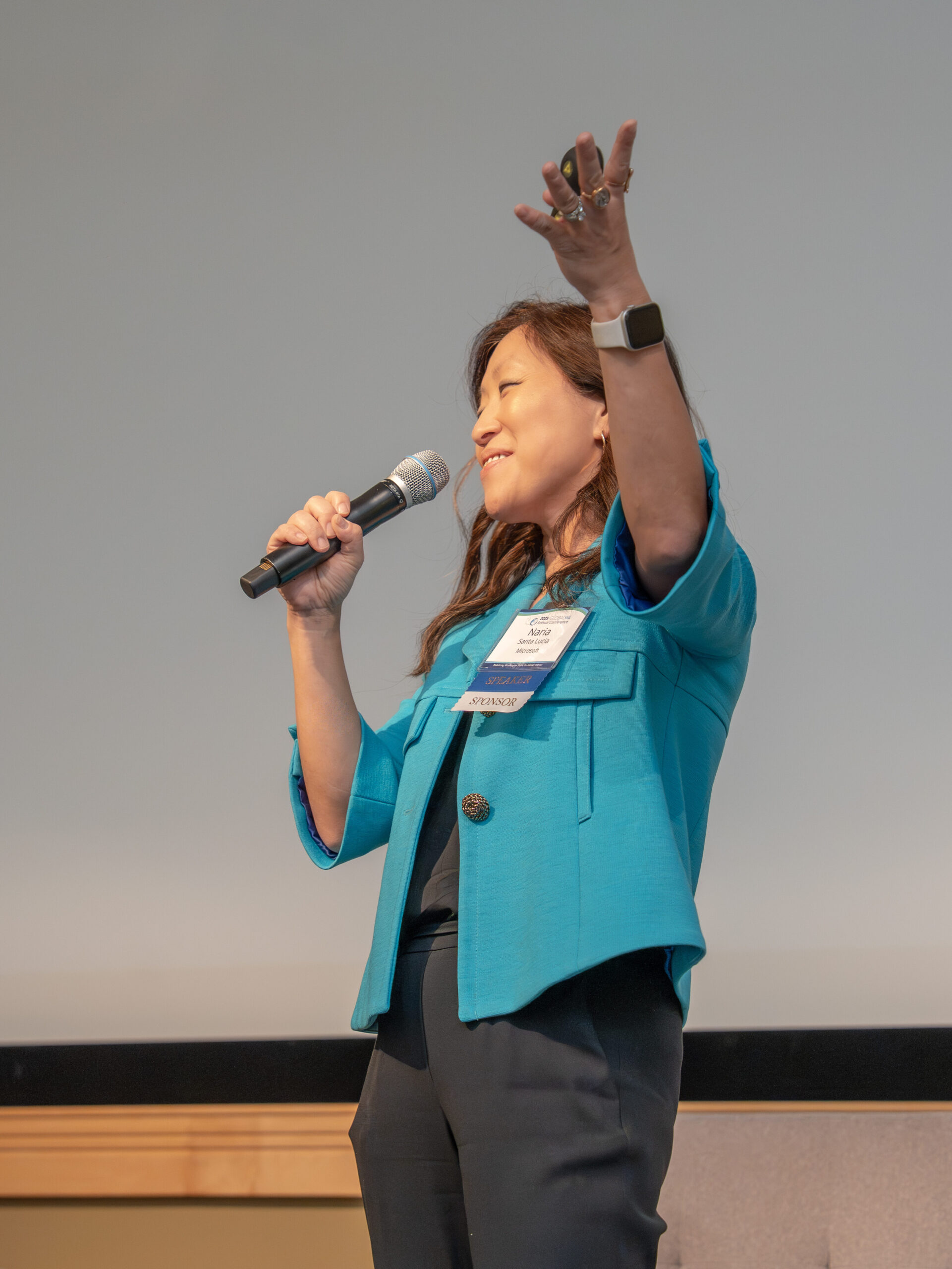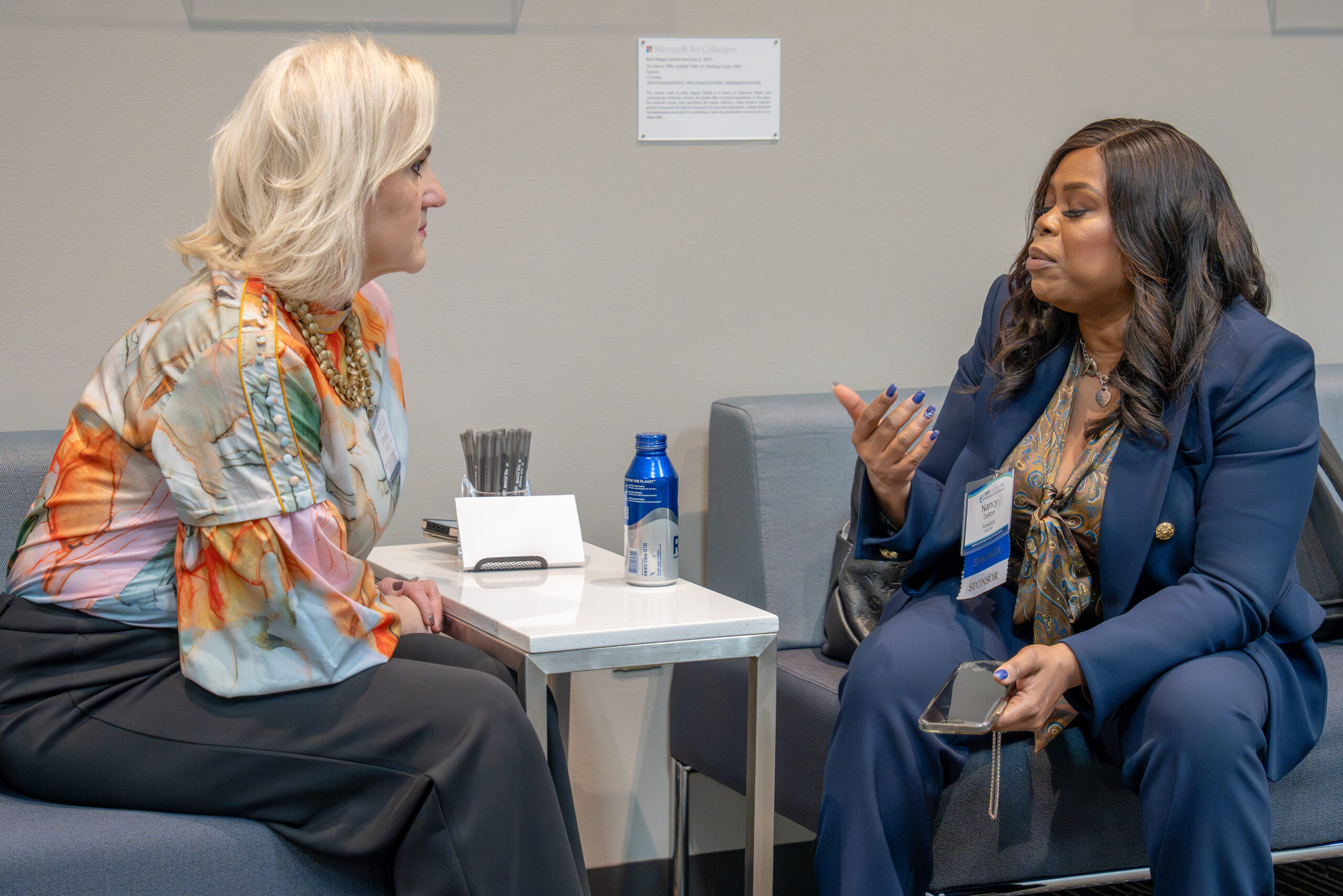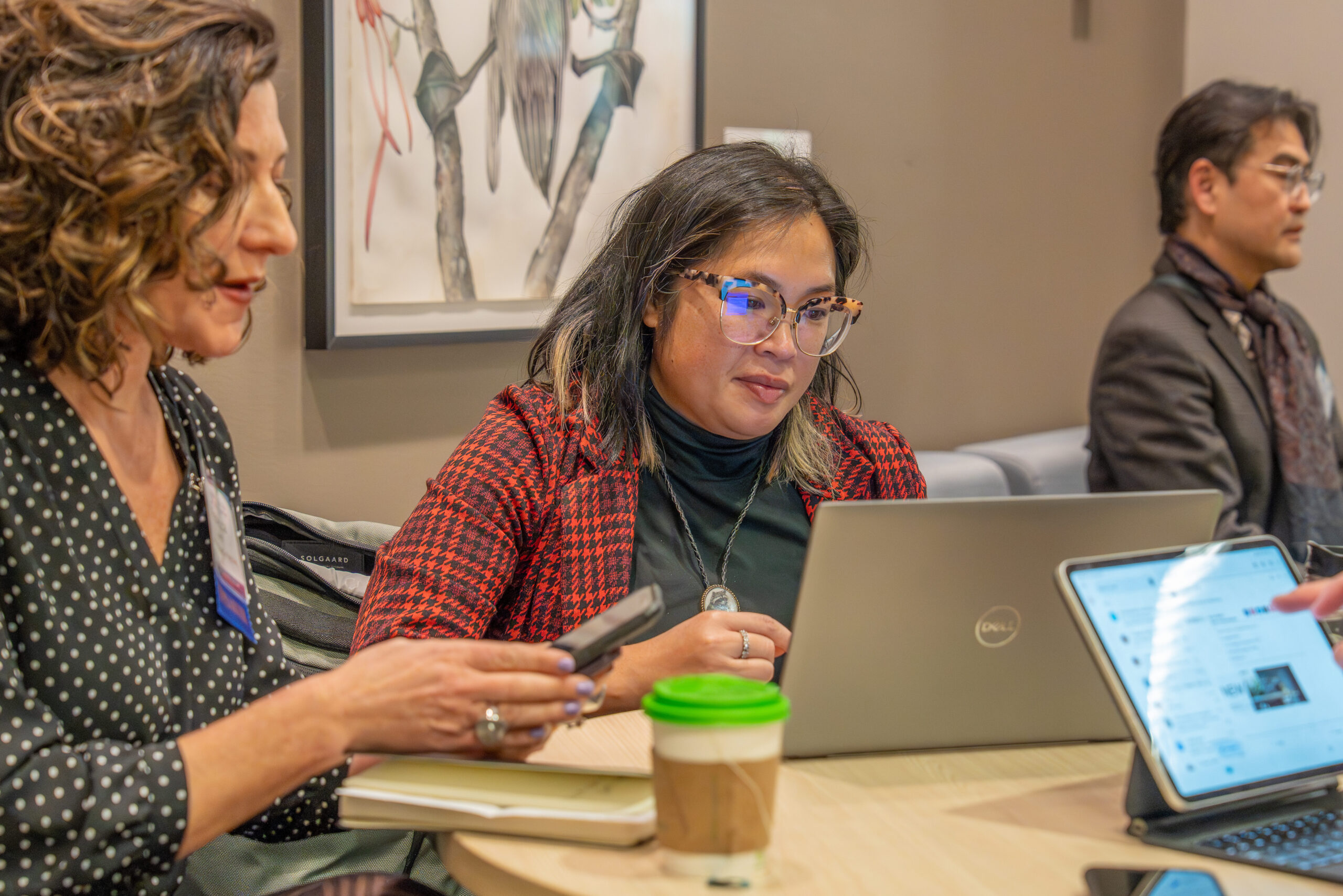Each year, GlobalWA convenes the global development community at Washington State’s premier global development event. This year, nearly 250 attendees gathered at the Microsoft Conference Center in Redmond under the theme Mobilizing Washington State for Global Impact to explore how local leadership, partnerships, and bold collaboration can drive systemic change worldwide.
This year’s conference felt especially urgent. At a moment when many across the sector are searching for a path forward after a challenging year, the value of gathering in person was palpable. GlobalWA Executive Director Elizabeth Stokely opened the day with a story about her 3-year-old son going to “work” with her, play doctor’s kit in hand. This child’s innate desire to help others was a perfect representation of the longing we all feel to make the world a better place, even as we carry collective grief. While there was no single “aha” moment, the conference made clear that this was the right place to start.
Throughout the day, attendees engaged in raw, personal, and forward-looking conversations—from an AI workshop and policy roundtable to a career development session—that strengthened a sense of community across the sector. While many challenges remain unresolved, one message rang clear: leaning into community is how we resist setbacks and move forward together.
Let’s Elevate the World Together
Stokely highlighted Washington State’s unique position to respond to global challenges, shaped by its strong ecosystem of philanthropy, technology, universities, research, and global connectivity. She shared how GlobalWA’s new strategy—focused on convening community, strengthening capacity, and mobilizing collective action—has helped the organization adapt during a time of uncertainty.
Keynote speaker Naria Santa Lucia, General Manager at Microsoft Elevate, echoed this sentiment by emphasizing the immense talent and innovation rooted in Washington State. Calling on large institutions to support collective mobilization, she reminded attendees that while change is inevitable, we do not have to navigate it alone.
Several sessions reinforced this theme, including conversations on subnational diplomacy and the power of storytelling to rebuild support for global development. Ports, state agencies, local government, community groups, and individuals all have roles engaging globally even as national policy retreats. Across discussions, one conclusion emerged clearly: elevating global impact must happen together—though the question of “how?” remains.
Washington State’s Global Moment: Rethinking Collaboration
The opening panel set a bold tone for the day, bringing together leaders from academia, philanthropy, global health, and the private sector. The conversation challenged the sector to examine how we work, who we center, what genuine collaboration truly requires, and how we hold ourselves accountable.
Heidi van Rooyen, Chair of the University of Washington Department of Global Health, posed a central question: “What does it mean to genuinely collaborate?” She called for letting go of entrenched power dynamics and moving beyond “do-gooder” models that continue to shape Global North–South partnerships. Her remarks resonated throughout the room and framed many conversations that followed.
Later sessions responded directly to this challenge. Speed networking created purposeful space for connection, while the participant-driven Insights to Action session questioned U.S.-centric assumptions and emphasized local leadership, mutual benefit, and shared accountability over transactional engagement. Questions around funding loomed as the community advanced ideas for true collaboration.
Confronting the Funding Gap
Funding surfaced repeatedly as one of the sector’s most pressing challenges. Philanthropy Northwest CEO Jill Nishi shared how her organization challenged funding cuts by filing suit and fighting to restore wrongfully terminated funds. She reminded attendees that compliance is not the only option, even when resistance is difficult.
Kammerle Schneider, Chief of Global Health Programs at PATH, expanded on this, noting that the traditional aid system’s reliance on federal funding left it vulnerable. She pointed toward more resilient approaches: centering communities, engaging the private sector, and navigating the dual opportunities and risks presented by emerging technologies and AI.
Breakout sessions explored shifts toward locally led systems, cost-effective funding models, and partnerships that equip local governments and organizations to receive and manage funding directly. While significant uncertainty remains, one point was clear: collaboration and adaptation remain essential to the sector’s future.
Mobilizing Beyond the Conference
By the end of the day, attendees felt both exhausted and inspired. In a final collaborative exercise, participants reflected on where solutions emerged and how the GlobalWA community could sustain momentum beyond the conference. Conversations with near-strangers quickly felt like exchanges with trusted colleagues—a testament to a community united by shared purpose and a desire to rebuild the sector together.
Facilitators emphasized the importance of sustaining these connections and introduced a simple framework for continued engagement: the “me” (individual reflection), the “we” (collective connection), and the “bigger we” (commitment to the common good). Attendees were asked to commit to one tangible action they would take to drive meaningful change, and many signed the collective commitment banner.
What does our sector need to do moving forward? Notes from our panelists:
- Have a collective voice
- Go together
- Find strength in vulnerability
- Dig deeper, even when you are tired
- Put your own oxygen mask on first
- Put on a lens of abundance
- Focus on being effective first, efficiency will follow
Looking Ahead
Moderator and GlobalWA Board Member Akhtar Badshah closed the day with three guiding reflections:
- It is time for us to be unreasonable.
- Don’t set your own table—go to the one already set in our community.
- Say yes. It often leads to good trouble.
At GlobalWA, our conference is only the beginning. Through events and convenings throughout the year, we continue to build a connected global development ecosystem in Washington that grows capacity, navigates complexity, and scales impact worldwide. We invite you to stay engaged—sign up for our mailing list, explore membership, and support us on Giving Tuesday. How will you honor your own commitment to global impact?
Special Thank You
We are deeply grateful to our speakers, volunteers, and sponsors whose time, expertise, and support made this conference possible. We look forward to continuing our collaboration as we mobilize the next chapter of global development.

